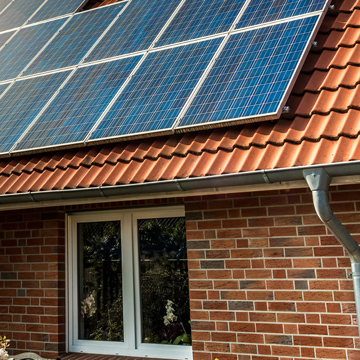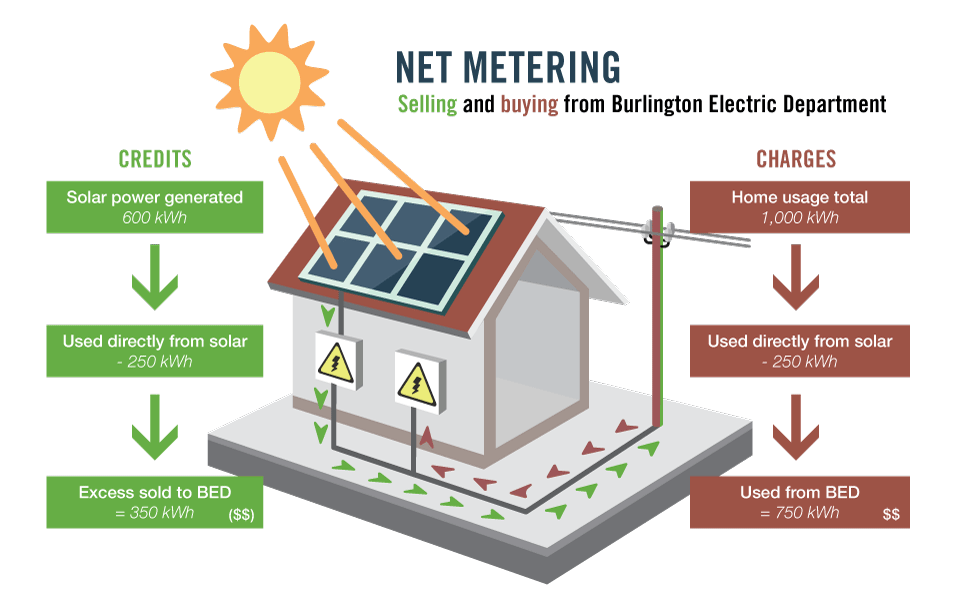Solar Billing
Understanding Net Metering
 Solar customers are billed using a system called Net Metering. A net-metered system is a renewable energy installation (like solar or wind) that you own and is connected to your building and to the electric grid. If a renewable energy system produces more power at any given moment than the property consumes, the extra power will flow into BED’s electric grid and the customer may receive a credit. A special bi-directional meter or net-meter (provided by BED) measures the amount of electricity used from the grid and any excess electricity sent to the grid.
Solar customers are billed using a system called Net Metering. A net-metered system is a renewable energy installation (like solar or wind) that you own and is connected to your building and to the electric grid. If a renewable energy system produces more power at any given moment than the property consumes, the extra power will flow into BED’s electric grid and the customer may receive a credit. A special bi-directional meter or net-meter (provided by BED) measures the amount of electricity used from the grid and any excess electricity sent to the grid.
Net metering is the process of measuring the difference between the electricity supplied to a net-metered customer from the electric grid and the electricity generated by a customer’s electric generation system (typically, a photovoltaic array).
The timing of when electric power is consumed and generated is an important factor in determining how much of a bill credit, if any, can be earned in a given month.
In the example below, a customer’s property used 1,000 kWh during a month when their system generated 600 kWhs. However, the customer didn’t use all 600 kWhs when that power was being generated. This is common if, say, the customer isn’t home using their appliances or lights during the middle of the day when most solar power is generated. Because of this, we keep two separate running totals: how much unused solar generation you put back onto the BED grid (the green boxes below) and how much of BED’s electricity you needed to power your property (the brown boxes below).

The rate BED charges per kWh for usage may be different from the rate we credit customers for their excess generation sold back to us. This is why we have to keep the two separate totals.
Our Energy Services Team is available to explain the Net Metering Tariff in more detail and answer any questions about net-metering systems in Burlington. Contact Energy Services if you have questions.
Additional Information
Additional information about Vermont’s Net Metering rules and application process can be found at the Public Utility Commission’s website.
Additional information on photovoltaic and other generation systems in Burlington area can be found on our Distributed Generation page.
The State of Vermont Department of Public Service has more detailed information on Net Metering laws.
Net Metering Application Forms (instructional video below)
How to File a Net-Metering Registration, Application, and Petition
